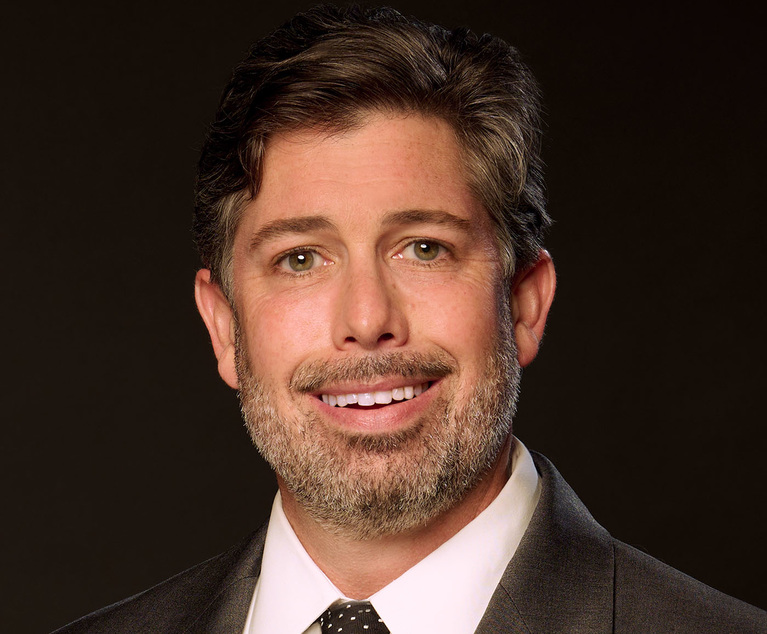Kristie Rearick
Kristie Rearick is the magazines and publications editor at The Legal Intelligencer. She handles contributed content for the newspaper. Contact her [email protected].

October 11, 2024 | The Legal Intelligencer
Real Property Sale Proceeds Must Be Paid First to Unavoided Portion of IRS Tax LienThe Ninth Circuit reversed the decision of the U.S. Bankruptcy Court for District of Arizona, and in a case of first impression, held where the trustee avoids the portion of a tax lien attributable to penalties, the sale proceeds must be used first to pay in full the unavoided tax lien liability amount rather than allocating the proceeds pro rata.
By Andrew C. Kassner and Joseph N. Argentina Jr.
7 minute read

October 11, 2024 | Daily Business Review
Navigating Property Owners' Liability in Sexual Assault CasesWhile criminal prosecutions may hold perpetrators accountable, civil law offers another path toward justice—one in which property owners may be held liable for creating or contributing to the conditions that enabled the assault.
By Evan Robinson
8 minute read

October 11, 2024 | Daily Business Review
Turning Down the Rancor Around DEI: Re-embracing the Value of—and Values Behind—Workplace Diversity ProgramsIt's time to step back and re-evaluate exactly what diversity, equity and inclusion mean for the workplace and for America's business communities.
By Dave Poston and John Brown
6 minute read

October 10, 2024 | The Legal Intelligencer
The Status of Intent-Based Parentage in PennsylvaniaFollowing the Sept. 11, 2024, arguments on the appeal of Glover v. Junior, the Pennsylvania Supreme Court is poised to decide whether the doctrine of "intent-based" parentage will be adopted in Pennsylvania.
By Megan A. DelVecchio
5 minute read

October 10, 2024 | The Legal Intelligencer
Zoning Enforcement Pitfalls and How to Avoid ThemCrossing and dotting the proverbial "t's" and "i's" at each step of the process will help to ensure the effective administration of a zoning ordinance.
By Robert Max Junker and Morgan M. Madden
8 minute read

October 10, 2024 | The Legal Intelligencer
Generative AI and Ethics: My Recent Eye-Opening ChatGPT ChatI experimented with the very popular generative AI platform ChatGPT, better to understand the reported incidents of AI-fabricated case citations and the resultant growing judicial concern that generative AI can produce shoddy citations or fabricated caselaw.
By Jane Roach Maughan
18 minute read

October 10, 2024 | The Legal Intelligencer
Don't Reinvent the Wheel: Approaching Gen AI Usage in LitigationEthical and regulatory guidance is emerging, but what of practical day-to-day considerations? What current actions should a mindful practitioner with an existing caseload take in order to fulfill the ethical obligation of competence found within the Rules of Professional Conduct?
By Gregory P. Graham
9 minute read

October 09, 2024 | The Legal Intelligencer
Boo! Things That Scare Attorneys (But Should Not)I am still surprised at what can panic such professionals. Sometimes, all it takes is a well worded unsolicited communication to shake the most stoic of solicitors. So, for you, my friends, here are a few things to look out for when you receive communications like that, when you should take action, and when you can discard them with delight.
By Jamie K. Mulholland
8 minute read

October 09, 2024 | Daily Business Review
Will Ohtani's 50/50 Ball Be Split 50/50? Fla. Court to Decide Owner of $4.5M Disputed CatchOnce the ball left the yard and entered the seats, Ohtani and MLB no longer owned it. Instead, a Florida court will decide the rightful possessor of the prized ball between two fans who both claim they caught it.
By Patrick Judd
11 minute read

October 09, 2024 | Delaware Business Court Insider
Court of Chancery Rejects 'Caremark' Liability for Imperfect Compliance With Legal ObligationsIn dismissing for failure to plead demand futility, Vice Chancellor Lori W. Will explained that that allegations of independent directors' knowledge of "imperfect compliance" did not provide a reasonable inference of bad faith "intentional lawbreaking."
By K. Tyler O'Connell
5 minute read
Trending Stories
- 1DeepSeek Isn’t Yet Impacting Legal Tech Development. But That Could Soon Change.
- 2'Landmark' New York Commission Set to Study Overburdened, Under-Resourced Family Courts
- 3Wave of Commercial Real Estate Refinance Could Drown Property Owners
- 4Redeveloping Real Estate After Natural Disasters: Challenges, Strategies and Opportunities
- 5Calif. Fires Should Serve as a Reminder to Fla.’s Commercial Landlords and Tenants Not to Be Complacent



